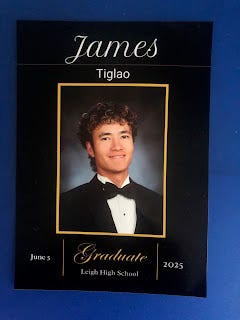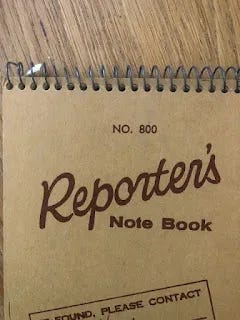Among my possessions is a painted cardboard box. It’s pastel green and dates from the 1960s, when I went away to college. I guess my parents painted the box in an effort to strengthen it.
Inside were many copies of stories I wrote for the Michigan Daily. There also was a copy of Life magazine with a story about student protestors, which included a photo of me being arrested.
It was 1968 and the campuses were erupting with similar protests all over the country. This was one of the times I mixed my new role as a journalist with political activism, and wouldn’t you know, it ended up memorialized by Life magazine.
Of course, at the time, I was proud of what I’d done. The charges of trespassing on public property, to which I pled, carried no actual penalty beyond a day’s labor in a local park.
But I and my fellow convicts refused to cut down the trees as we were instructed to do, as part of an an environmental protest. Thinking back on it, we must have been one big royal pain in the ass for the authorities.
They chose to ignore the fact we didn’t serve our sentence, turning instead to more pressing matters, such as the bombing of the local CIA office, which led to the indictment of John Sinclair, and brought John Lennon to Ann Arbor to sing in his support.
One thing led to another for me and within a few years I was somewhat improbably editing pieces Lennon and Yoko Ono produced for SunDance magazine out in San Francisco.
A few more years and I was a reporter at Rolling Stone.
At the bottom of the files in the box was my FBI file, which I obtained under the Freedom of Information Act. The Bureau kept track of me starting with that arrest in college and my work for an underground paper in Ann Arbor. It tracked me as I relocated to San Francisco to work at SunDance and throughout the years at Rolling Stone.
Including my stories on the FBI’s COINTELPRO illegalities.
Much of the information in that file is blacked out in the classic way the FBI redacted files prior to releasing them under the FOIA, but there was nothing in there of any consequence.
So that old cardboard box painted pastel green contains a lot of memories, too many really, so I closed it back up and put it away for another day.
(I’ve published different versions of this one over the years.)
HEADLINES:
American Seclusion (Atlantic)
Mistakenly Deported Man Is Returned to U.S. (NYT)
Trump tells CNN he’s ‘not even thinking about Elon’ and won’t speak to him ‘for a while’ (CNN)
From bros to foes: how the unlikely Trump-Musk relationship imploded (Reuters)
Trump Threatens Musk Contracts as Feud Escalates (NYT)
Trump and Musk break up, and Washington holds its breath (AP)
Musk says Trump is named in Epstein files (The Hill)
Trump administration races to fix a big mistake: DOGE fired too many people (WP)
Every Election Is Now Existential (Atlantic)
The emperor has no tanks (Financial Times)
Immigrants in America are being abducted and disappearing as the Trump administration wages its aggressive deportation campaign with little oversight. But is it a crime? We spoke with academics and researchers who study how rogue states “disappear” people. [HuffPost]
New Travel Ban Prompts Fear and Frustration for U.S. Immigrants (NYT)
More Americans disapprove than approve of the job Robert F. Kennedy Jr. is doing as U.S. health secretary (Pew)
Deadly Russian bombardment of Ukraine further dampens hopes for peace (AP)
What unites countries under Trump’s travel ban is American imperialism (Guardian)
When Pete Hegseth’s Pentagon Tenure Started Going Sideways (Atlantic)
Xi’s Message to Trump: Rein In the Hawks Trying to Derail the Truce (NYT)
Israel confirms it is arming Hamas rivals in operation opposition calls ‘complete madness’ (CNN)
University of Michigan using undercover investigators to surveil student Gaza protesters (Guardian)
US health care is rife with high costs and deep inequities, and that’s no accident – a public health historian explains how the system was shaped to serve profit and politicians (Conversation)
Scientists Discover Natural Molecule That Reverses Cognitive Decline (SciTechDaily)
What Happens When People Don’t Understand How AI Works (Atlantic)
OpenAI is storing deleted ChatGPT conversations as part of its NYT lawsuit (Verge)
How much information do LLMs really memorize? Now we know, thanks to Meta, Google, Nvidia and Cornell (VentureBeat)
Anthropic researchers predict a ‘pretty terrible decade’ for humans as AI could wipe out white collar jobs (Fortune)
FEMA Chief Confused By Wind (The Onion)






